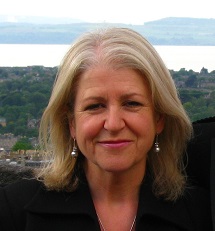Award for research tackling health inequality
Professor Candace Currie of the University of St Andrews’ School of Medicine is to receive a prestigious Wolfson Research Merit Award from the Royal Society.
Professor Currie is among just 19 leading scientists working in the UK to be named in the exclusive list published today (Friday 31 July, 2015).
 Professor Currie’s award recognises her research into developmental transitions in adolescent health. She is Director of the Child and Adolescent Health Research Unit (CAHRU), Co-Director of the WHO Collaborating Centre for International Child and Adolescent Health Policy, and Principal Investigator (Scotland) for the Global Early Adolescent Study. Her work has highlighted childhood and adolescent social inequality around the globe, and is vital to understanding the interventions that can help ensure a better future for young people.
Professor Currie’s award recognises her research into developmental transitions in adolescent health. She is Director of the Child and Adolescent Health Research Unit (CAHRU), Co-Director of the WHO Collaborating Centre for International Child and Adolescent Health Policy, and Principal Investigator (Scotland) for the Global Early Adolescent Study. Her work has highlighted childhood and adolescent social inequality around the globe, and is vital to understanding the interventions that can help ensure a better future for young people.
Professor Currie said: “I am very honoured to have received the award which also gives recognition to the importance of the field of adolescent public health. The award provides a platform for a new programme of research I am planning with colleagues at St Andrews and international collaborators into the cultural, economic, social and biological factors that shape healthy adolescent transitions from childhood through puberty in different countries.”
Jointly funded by the Wolfson Foundation and the UK Department for Business, Innovation and Skills (BIS), the scheme aims to provide universities with additional support to enable them to attract science talent from overseas and retain respected UK scientists of outstanding achievement and potential.
Notes to news editors
For images please contact the press office on 01334 462 108.
The Wolfson Foundation is a grant-making charity established in 1955. Funding is given to support excellence.
The Royal Society is a self-governing Fellowship of many of the world’s most distinguished scientists drawn from all areas of science, engineering, and medicine. The Society’s fundamental purpose, as it has been since its foundation in 1660, is to recognise, promote and support excellence in science and to encourage the development and use of science for the benefit of humanity. Follow the Royal Society on Twitter or on Facebook.
Category Awards